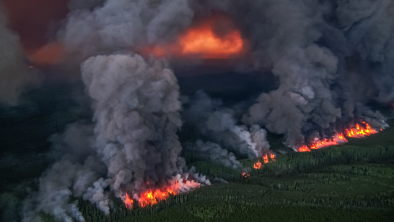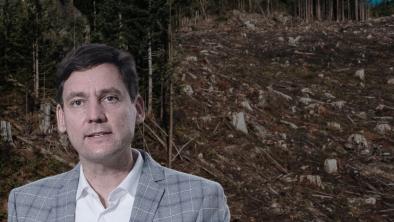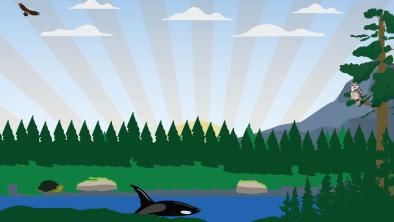B.C. should protect land as a hedge against climate change, groups say
Vancouver Sun
Half of B.C.'s land base should be protected to maintain biodiversity in the face of climate change, a coalition of leading environmental groups has recommended to the provincial government.
The coalition says in a 99-page report that existing parks and protected areas cover almost 15 per cent of the province's land base, not nearly enough to protect landscapes and wildlife against the ravages of climate change.
The report, prepared by forest ecologist Jim Pojar, recommends that "at least an additional 35 per cent of the land base [be] managed for biodiversity and carbon," a recognition that natural forests store carbon dioxide better than do industrial forests.
New land designations and/or tenures will likely be required to guide management of the expanded conservation network outside of existing parks and protected areas, the report states.
Only activities "compatible with the long-term objectives of biodiversity conservation and adaptation" should be allowed in these new areas, it says.
Connectivity of landscapes will become increasingly important as B.C.'s climate continues to warm and species migrate to find new homes.
"Species confronting rapid environmental change will either go extinct or survive in one of three ways: by acclimatizing, evolving, or migrating to suitable habitats elsewhere," the report states.
"Those that adapt in their original location will have additional competition from other species or genotypes better suited to the new local environment."
B.C. is home to three-quarters of Canada's mammal and bird species, 70 per cent of its freshwater fish, 60 per cent of its evergreen trees, and thousands of other animals and plants, the report says.
The province's climate over the next 100 years will become even warmer, with mean annual temperatures warming by 3 to 5 degrees C if current trends continue unabated.
There will be more extreme weather events with increasing intensity of storms, floods, wildfires and drought.
The full report, A New Climate for Conservation, can be viewed at www.forestethics.ca.
The report was commissioned by BC Spaces for Nature, Canadian Parks and Wilderness Society, David Suzuki Foundation, ForestEthics, Land Trust Alliance of B.C., West Coast Environmental Law, and Yellowstone to Yukon Conservation Initiative.


